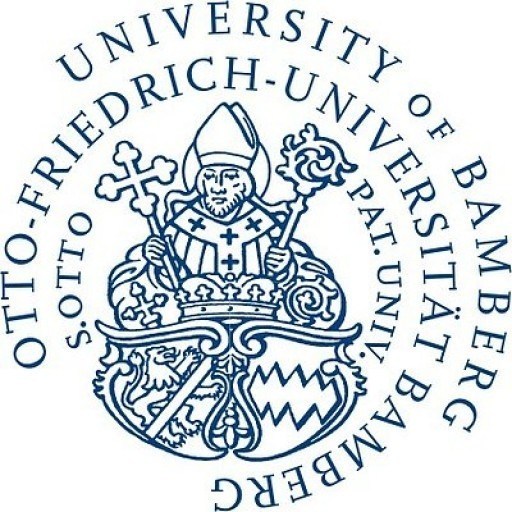Photos of university / #ucl
The MSc in Health and Society — Social Epidemiology at University College London offers a comprehensive exploration of how social factors influence health outcomes and contribute to health inequalities across populations. Designed for students interested in understanding the complex interplay between social structures, behaviors, policies, and health, this program provides both theoretical foundations and practical skills necessary for impactful research and policy development in public health. Students will examine key concepts in social epidemiology, including social determinants of health, health disparities, and the methodological approaches used to study these phenomena. The curriculum covers a wide range of topics such as the social context of health, life course influences, health inequalities, and the evaluation of public health interventions through rigorous research methods. Delivered by leading experts in the field, the program combines lectures, seminars, and hands-on research projects, giving students the opportunity to apply their knowledge to real-world issues. With a focus on critical analysis and empirical research, graduates will be equipped to pursue careers in academia, governmental agencies, international organizations, and non-governmental organizations working to improve health outcomes and reduce health disparities worldwide. The program emphasizes interdisciplinary learning, integrating perspectives from sociology, public health, epidemiology, and policy studies, ensuring a well-rounded education. UCL’s vibrant academic community and extensive network provide students with valuable opportunities for collaboration, internships, and engagement with policymakers and practitioners. Whether aiming to advance in research, policy development, or advocacy, graduates of this programme will be well-prepared to make meaningful contributions to understanding and addressing social health challenges on a local, national, and global scale.
Students gain knowledge of the various approaches to social epidemiology, and develop relevant skills in study design and data analysis, exploring the link between social environment and health, alongside a broad perspective on the social determinants of health and an ability to advocate research and policy measures in the field.
Students undertake modules to the value of 180 credits.
The programme consists of seven compulsory modules (105 credits), one optional module (15 credits) and a research project (60 credits).
A Postgraduate Diploma, seven core modules (105 credits), one optional module (15 credits), full-time nine months, part-time two years or flexible-time up to 5 years is offered.
Core modules
- Social Epidemiology: Dimensions of Inequality
- Basic Statistics for Medical Sciences
- Epidemiology
- The Social Determinants of Global Health
- Regression
- Research Methods for Social Epidemiology
- Health Inequalities over the Lifecourse
Optional modules
- Students choose either one of the two following options:
- Ethnicity, Migration and Health
- Advanced Statistical Modelling
- Or any relevant subject module within UCL
Dissertation/report
All MSc students undertake an independent research project relevant to the broad area of social influences on health, which culminates in a dissertation of a maximum of 15,000 words.
Teaching and learning
The programme is delivered through lectures, seminars, problem solving exercises, discussions, and supervised practical work. Students are encouraged to develop research and presentation skills, and are instructed in the preparation of scientific papers. Assessment is through coursework, essays, presentations, data analysis and grant proposal exercises, and the dissertation.
A minimum of an upper second-class Bachelor's degree in a relevant discipline from a UK university or an overseas qualification of an equivalent standard is required. Applicants must be confident using computers and show evidence of numeracy (e.g. O level/GCSE Mathematics or Statistics or a module with a good mark in their degree).
Wellcome Trust Scholarship
Eligibility:
UK, EU, Overseas students
Criteria:
Based on academic merit
Health and Society — Social Epidemiology at University College London offers a comprehensive exploration of the social determinants of health, focusing on how societal factors influence health outcomes across different populations. This MSc program is designed for students interested in understanding the complex interactions between social, environmental, and biological factors that contribute to health disparities and disease patterns worldwide. The course combines theoretical knowledge with practical skills, preparing graduates for careers in public health, policy development, research, and advocacy.
Students examine key concepts in social epidemiology, including the impact of socioeconomic status, ethnicity, gender, and lifestyle factors on health. The curriculum covers methodological approaches to analyzing health data, such as epidemiological study designs, statistical techniques, and data interpretation. Emphasis is placed on developing critical thinking skills to assess evidence and inform public health interventions effectively.
The programme is delivered through a mix of lectures, seminars, and practical sessions, often involving real-world datasets. It encourages interdisciplinary learning by integrating perspectives from sociology, psychology, economics, and medicine. Students also have opportunities to undertake independent research projects or internships with public health agencies, NGOs, or research institutions, providing valuable experiential learning.
Faculty members are experts in social epidemiology, public health policy, and related fields, guiding students through complex topics like health inequalities, social policies, and global health issues. The program aligns with current public health priorities, emphasizing the importance of addressing social determinants to improve population health and reduce health inequities.
Graduates of the MSc in Health and Society — Social Epidemiology are prepared for various roles, including public health analyst, policy advisor, research scientist, and program evaluator. Many also pursue further academic research, contributing to advancing knowledge in social epidemiology. The program's location in London offers access to a vibrant public health community and numerous professional networks, enhancing employment prospects after graduation. Overall, this program aims to equip students with the analytical tools, theoretical background, and practical skills necessary to make impactful contributions to public health and social policy worldwide.







